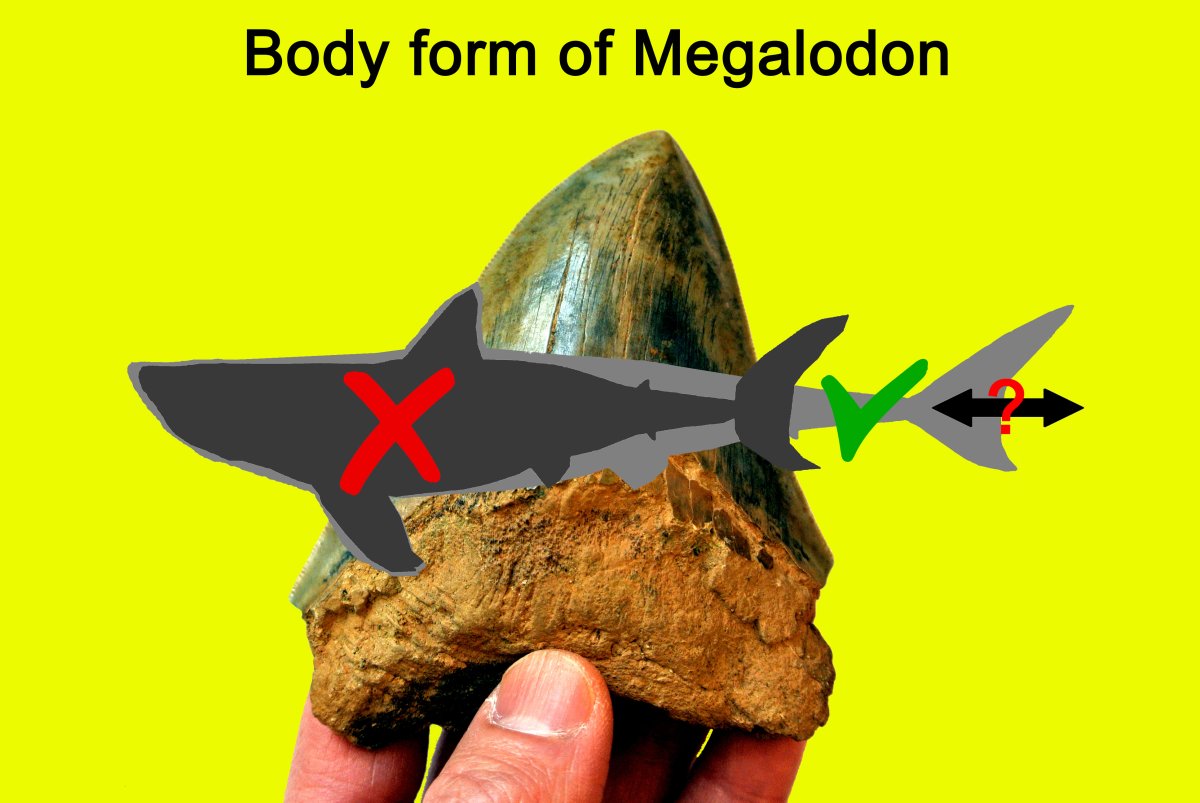-
Giant Megalodon Shark More Slender Than Thought - January 22, 2024
-
A portion of Mulholland Drive, damaged by mudslides in winter storms, reopens - May 26, 2024
-
‘Maybe You Don’t Want to Win’ - May 26, 2024
-
Donald Trump Putting Law Enforcement in Danger: Attorney - May 25, 2024
-
Avoid the waters of these 5 L.A. County beaches this holiday weekend, public health officials say - May 25, 2024
-
Bawdy Comedy ‘Anora’ Wins Palme d’Or at Cannes Film Festival - May 25, 2024
-
Map Shows Heat Wave Zone Spread Into Five New States - May 25, 2024
-
Azusa police arrest suspected slingshot-wielding vandal - May 25, 2024
-
Donald Trump Hammers Judge Ahead of Jury Instructions - May 25, 2024
-
Sometimes U.S. and U.K. Politics Seem in Lock Step. Not This Year. - May 25, 2024
Giant Megalodon Shark More Slender Than Thought
The megalodon is an infamous prehistoric creature, known for being a monstrous beast, often portrayed in films and books. But scientists have actually discovered that this infamous beast may have been more slender than previously thought.
The giant shark, which is related to the modern day great white shark, lived about 15 to 3.6 million years ago. Previous research has put its length at a whopping 50 to 65 feet, with many artists depicting a wide set creature that appears to be a gigantic version of the great white.
However, a new study published in the journal Palaeontologia Electronica found that its body was actually more elongated. The researchers came to this finding by studying a set of megalodon fossil vertebrae and the differences in their estimated body lengths. The research team consisted of 26 shark experts across 29 international institutions.
While comparing the megalodon vertebra fossils to those of relatives currently still alive today, they realized “a discrepancy between two previously published lengths for the same megalodon specimen,” according to DePaul University paleobiology professor Kenshu Shimada.
The scientists then had a “eureka moment.”

DePaul University/Kenshu Shimada
“It was still a giant, predatory shark. But the results strongly suggest that the megalodon was not merely a larger version of the modern great white shark,” UCR biologist and first author of the study, Phillip Sternes, said in a summary of the findings. “Even though it remains uncertain exactly how long the body of O. megalodon was elongated relative to the great white shark, this new finding marks a major scientific breakthrough in the quest to decipher what megalodon looked like.”
This is not to say that the ancient creature was any less fearsome. The researchers still believe this is one of the largest marine predators ever to have lived. But these findings will allow scientists to understand more about the predator, and in turn, how it impacted the surrounding oceans and marine ecosystems.
If the megalodon did have a longer body, it would also suggest that they had a longer digestive canal, the study reported. This may have meant that they did not have to eat as regularly as previously thought.
“With increased ability to digest its food, it could have gone for longer without needing to hunt. This means less predation pressure on other marine creatures,” Sternes said. “If I only have to eat one whale every so often, whale populations would remain more stable over time.”
Scientists cannot confirm exactly what caused the wipe out of these predators 6 million years ago, but it is thought that climate change had a role. As the waters got cooler, the huge animal may not have been able to sustain its body temperature. It could also be down to a lack of prey for the same reasons.

Baris-Ozer/Getty
“I believe there were a combination of factors that led to the extinction, but one of them may have been the emergence of the great white shark, which was possibly more agile, making it an even better predator than the megalodon,” Sternes said. “That competition for food may have been a major factor in its demise. Now that we know it was a thinner shark, we need to reinvestigate its lifestyle, how it really lived, and what caused it to die. This study represents a major stepping stone for others to follow up on.”
Do you have a tip on a science story that Newsweek should be covering? Do you have a question about the megalodon? Let us know via science@newsweek.com.
Uncommon Knowledge
Newsweek is committed to challenging conventional wisdom and finding connections in the search for common ground.
Newsweek is committed to challenging conventional wisdom and finding connections in the search for common ground.
Source link































